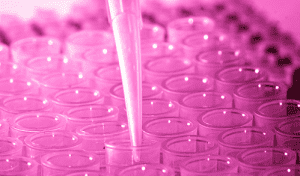Avastin filed for breast cancer treatment
pharmafile | July 10, 2006 | News story | Sales and Marketing |
Roche's Avastin could be licensed to treat advanced breast cancer in Europe by early 2007, following its filing with regulator the EMEA.
Women with advanced breast cancer, who have not received any treatment before, represent a minority of breast cancer patients, but face the bleakest outlook.
Avastin could offer new hope to these patients, with phase III trials showing Avastin, when added to existing chemotherapy treatment, can double the time these women survive without their disease advancing.
Roche has hailed the results as remarkable, and suggests that Avastin could eventually become the gold standard treatment for the disease.
The drug is the first in the VEGF-inhibitor class. It works by choking the blood supply that feeds the tumours (anti-angiogenesis), and has been investigated for a number of other cancers, including lung and pancreatic cancer.
Eduard Holdener, Head of Roche Pharmaceuticals Development commented on the results, saying: "The filing is an important milestone, demonstrating that anti-angiogenic therapy is changing the way that cancer is treated.
"It is a further step forward for Avastin to become part of the treatment armamentarium for a whole range of tumour types."
Avastin received its first European approval in January 2005 as a first-line treatment for colorectal cancer, and has been hailed as a breakthrough in treating the disease.
Roche plans to file Avastin in Europe later this year in advanced NSCLC, the most common form of lung cancer, as well as to broaden the current label in metastatic colorectal cancer.
Avastin was filed for a US licence in May, but its potential cost has already caused controversy. There, the drug costs around $50,000 a year to treat patients with colorectal cancer, but is likely to cost twice this amount when used to treat breast and lung cancer.
Genentech, the Roche subsidiary which discovered Avastin and market it in the US say this price is because breast and lung cancer patients require double the dose of the drug.
An article in The New York Times accused Genentech of 'price gouging' and the company could face a backlash, despite the drug's promising profile.
Related links:
Pharma heading for collision course over cancer drug costs








